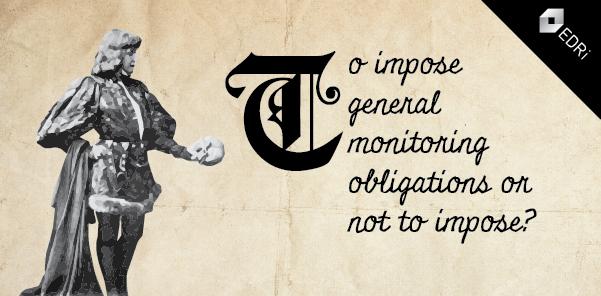ENDitorial: Consumer protection MEPs launch attack on consumers
Documents leaked by Julia Reda, a Member the European Parliament (MEP) show that parliamentarians on the Committee on the Internal Market and Consumer Protection (IMCO), whose job it is to protect consumers and improve legal consistency in the EU, are planning an assault on citizens’ fundamental rights, legal coherence and even the ultimate authority of the Court of Justice of the European Union (CJEU) to interpret the EU law.
The European People’s Party (EPP) parliamentarians in charge of the Copyright Directive in the Committees on Legal Affairs (JURI) and on Civil Liberties, Justice and Home Affairs (LIBE) are working hard to find meaningful compromises in addressing the most extreme parts of the European Commission’s proposal. However, this difficult work is being severely undermined by their colleagues in the IMCO Committee. According to the leaked documents, they proposed “compromise” amendments to the Copyright Directive. These amendments, supported by some parliamentarians from other political groups, attack:
a. Citizens’ fundamental rights
The proposed amendments would strip internet companies of their liability protections, forcing them to monitor, block, censor and delete uploads to the internet. European internet users would therefore face unpredictable restrictions on the legal content they upload or access on the internet, limiting their freedom of expression.
b. Legal coherence
If adopted, EU Member States would be required under EU law
- NOT to impose general monitoring obligations on internet companies and
- NOT to impose obligations to force internet companies to search for facts or circumstances indicating any illegal activities that might be happening on their networks, but, also
- to impose a general monitoring obligation on internet companies to search through all uploads, to look for unauthorised material.
So, EU Member States would have a legal duty to impose general monitoring obligations AND a legal duty not to impose general monitoring obligations.

c. The authority of the CJEU
The CJEU was asked in the Netlog/Sabam case whether an obligation to filter all material on a social media platform is acceptable. In its decision, the Court declared that this is incompatible with the Charter of Fundamental Rights of the European Union.
The CJEU was asked in the Scarlet/Sabam case whether an obligation to filter all material in an internet access providers’ network is acceptable. The Court again declared that this is incompatible with the Charter of Fundamental Rights of the European Union.
The parliamentarians, using a loophole in the Court rulings suggested by the European Commission, are now proposing the filtering of all material uploaded to the internet in Europe, in exactly the way that the Court prohibited.
If you want to tell MEPs what you think, the list of members is here:
http://www.europarl.europa.eu/committees/en/imco/members.html
Or you can randomly choose an MEP to call about the issue here: https://savethememe.net/en
Killing parody, killing memes, killing the internet? (08.05.2017)
https://edri.org/killing-parody-killing-memes-killing-the-internet/
Copyright reform: Document pool
https://edri.org/copyright-reform-document-pool/
The Netlog and Scarlet/Sabam rulings & ACTA – what have we learned? (29.02.2012)
https://edri.org/edrigramnumber10-4netlog-scarlet-ecj-rulings-acta/
Scarlet v SABAM: a win for fundamental rights and Internet freedoms (30.11.2011)
https://edri.org/edrigramnumber9-23scarlet-sabam-win-fundamental-rights/
(Contribution by Joe McNamee, EDRi)



